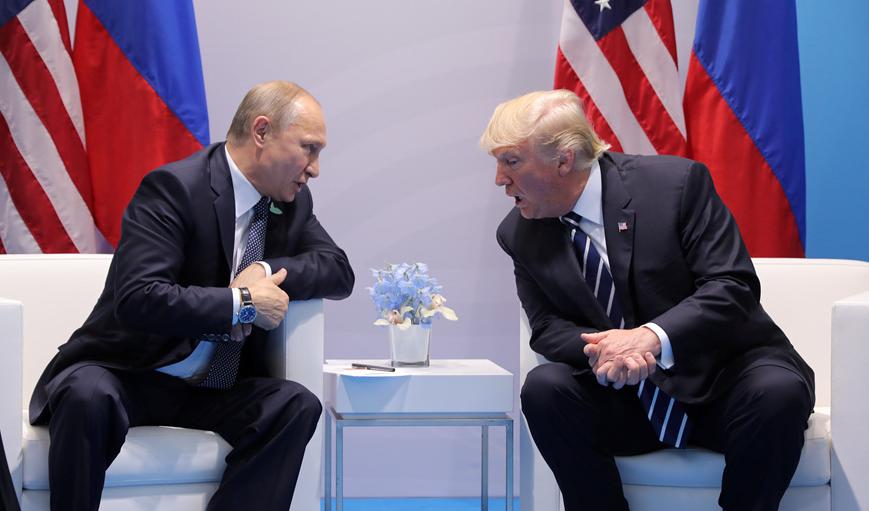
Shen Yi, Associate professor, Department of International Politics, Fudan University
Aug 17, 2017
On August 2, U.S. President Donald Trump signed into law the “Countering America’s Adversaries Through Sanctions Act.” With Trump-Putin relations agitated and China and the U.S. still lacking cooperation on the issue of North Korea, who will be the biggest loser amidst the superpowers? Who will benefit from the sanctions?
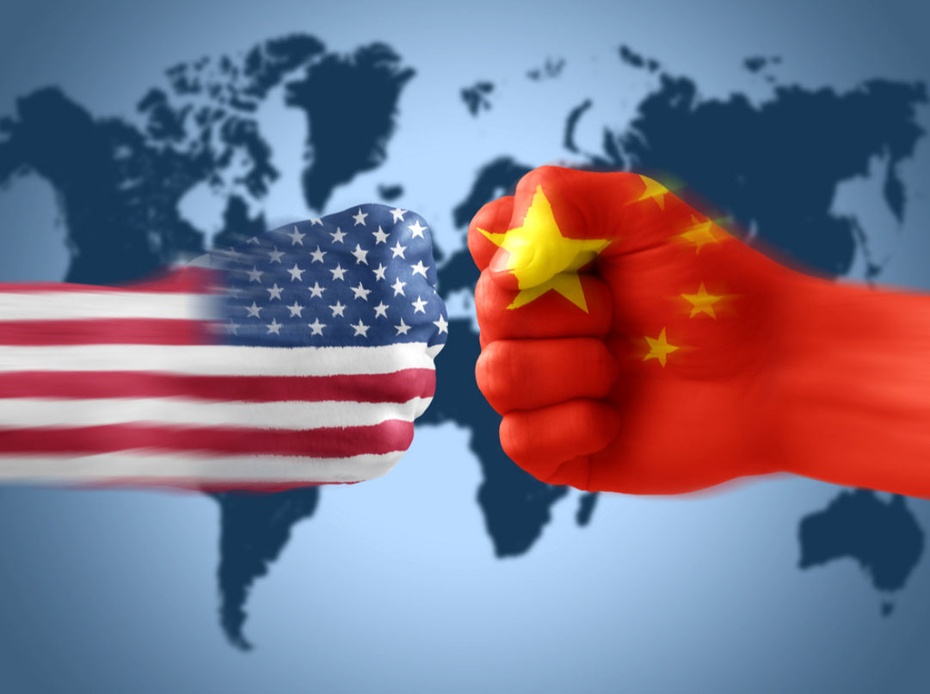
Zheng Yu, Professor, Chinese Academy of Social Sciences
Jul 12, 2017
it seems that the tough approach on the South China Sea was more a campaign strategy than a policy plan. Like previous administrations, the Trump team sees armed conflict between China and the US as a losing proposition for all sides, and issues of economy, trade and the South China Sea better managed by cooperation than confrontation.
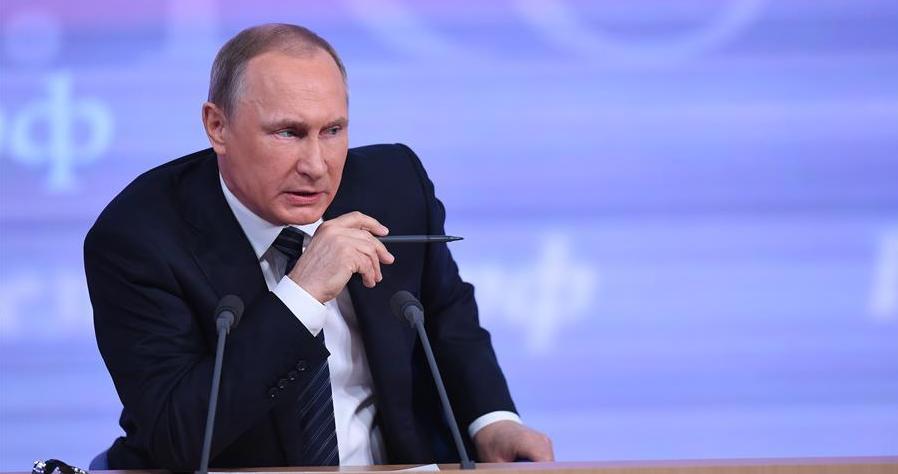
Brahma Chellaney, Professor, Center for Policy Research
Jun 13, 2017
U.S.-led sanctions against Moscow are helping to create a more assertive Russia determined to countervail American power, even as a special counsel investigates alleged collusion between President Donald Trump’s election campaign and Moscow, have compelled Russia to pivot to China.
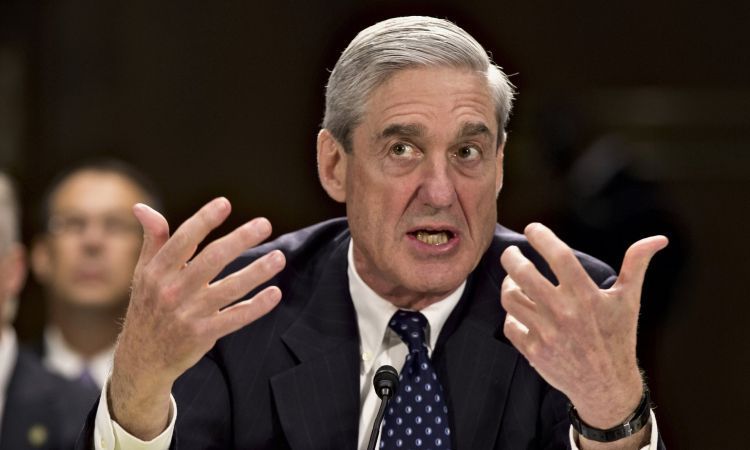
Dan Steinbock, Founder, Difference Group
Jun 09, 2017
In the foreseeable future, the Trump administration will be constrained by the special counsel’s Russia investigation. How will it impact the White House’s relations with China?
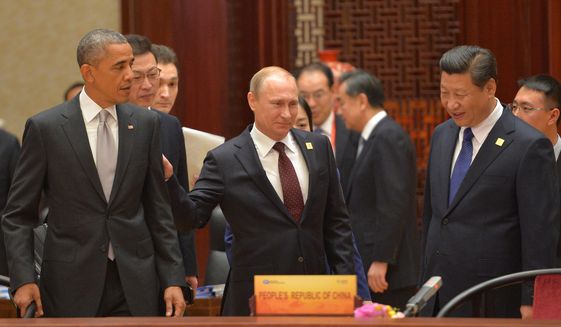
Elizabeth Wishnick, Professor, Political Science at Montclair State University
May 29, 2017
Though the election of Donald Trump at first seemed likely to change the U.S.-Russia-China strategic triangle, relations between the countries have largely remained where they were under Obama. If you remember your geometry lessons, we now have an isosceles triangle—China occupies the pivotal position at the top and has better relations with both Russia and the United States than they have with each other.
Paul Haenle, Director, Carnegie–Tsinghua Center
Apr 13, 2017
President Donald Trump has expressed a similar desire to renew relations with old adversaries—most notably, Russia. He believes there are geopolitical “deals” to be reached through artful negotiations, but in reality, U.S. national security interests would be best served by more sustainable policy frameworks.
Howard Stoffer, Associate Professor of National Security, University of New Haven
Mar 31, 2017
The U.S. needs China a great deal more than it does Russia in order to minimize the security threats from the unstable and threatening North Korean regime and to maintain regional stability in Asia.
Howard Stoffer, Associate Professor of National Security, University of New Haven
Mar 20, 2017
The U.S. needs China a great deal more than it does Russia in order to minimize the security threats from the unstable and threatening North Korean regime and to maintain regional stability in Asia.
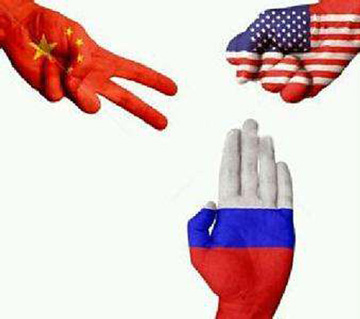
Steven W. Lewis, Director of China Studies Program, Baker Institute for Public Policy
Mar 27, 2017
Developments in the realms of outer space and energy/environment now present us the opportunity for three of the world’s great powers – China, Russia and the United States – to increase significantly international cooperation in the long run for two of the four global public commons: space and energy/environment. However, such improvements will not happen unless leaders in Washington, Beijing, and Moscow rethink historical notions of competition and conflict among them.
Wang Zhen, Research Professor, Shanghai Academy of Social Sciences
Mar 09, 2017
America’s biggest enemy today is neither China nor Russia, but its own identity crisis. Resorting to out-of-date thinking to seek a new “balancing” strategy of realigned alliances makes no sense in today’s economically interdependent world. Turning potential friends into foes, on the other hand, could lead the country in a terrible direction.